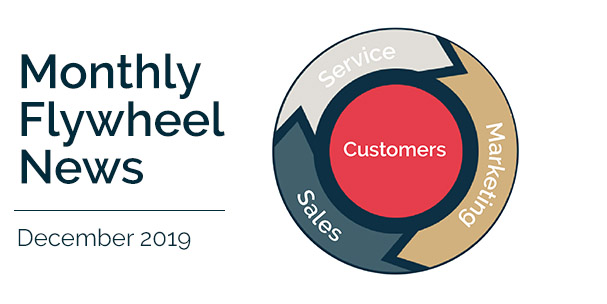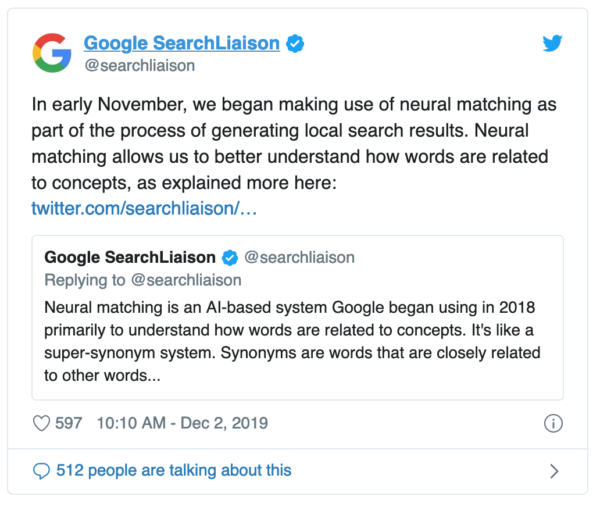Flywheel News: Your Top 7 Hotel Digital Marketing Updates From January 2020

Although it might have felt like it was going on forever, the first month of the new decade has finally come to a close. There was no shortage of changes and announcements throughout the digital marketing industry over the past month and GCommerce is here to ensure you don’t miss the biggest ones. Here is our top 7 list of digital marketing news updates from January 2020:
1. Google Shakes Up its Desktop Research with a New Design
Google started the year off by launching a new design for its desktop search. First released to its mobile search design back in May, Google transitioned desktop search design to feature a black “Ad” label to identify paid search ads and favicons to identify organic search results.

The industry, and it seems a lot of the general public, sees the change as a negative. GCommerce sees this as another move to confuse users and increase the opportunity they will click on a paid search ad to help Google with its bottom lines. More recent chatter on the subject is that Google might change it back due to backlash from the public as well as the search marketing industry. I’ve personally seen the change revert back to no favicon views in my organic SERP while the black ad label has remained. What are you seeing now?
2. Google Rolls Out January 2020 Core Algorithm Update

Google rolled out it’s January 2020 core algorithm update which brought with it a lot of movement to the SERP. The biggest impact felt by sites that fall within the categories of Health, Family, Beauty, Finance, Internet, Vehicles and Law/Government as reported by Moz. That isn’t to say that travel wasn’t hit. Moz reported Orbitz as a top loser from the algorithm update. Across our clients, we’re also seeing some winners and losers. Please reach out to your Account Executive to inquire if your rankings or organic traffic have suffered since the update. If you’re finding a drop in rankings/traffic since the update, take time to assess the quality of the content on your pages, how can it be improved to better serve your audience?
3. Google Will No Longer Repeat Web Pages Showcased in Featured Snippets

Historically web pages that achieved the coveted “position zero” known as feature snippets in the SERP were rewarded with not only the snippet but a second organic listing on page one. Starting in January, Google will no longer feature the webpage a second time on the 1st page of results. The second listing can appear on a lower page but it’s not guaranteed. Although hotel focused searches don’t have as many opportunities for featured snippets, if your hotel captures this spot with FAQ and how-to or blog content your website’s organic traffic could be impacted.
4. Google Removes Ads and Sponsored Labels from Flight Search
In an interesting move, Google announced that it will “no longer be charging partners for referral links on Google Flights.” Because of this, the “ads” and “sponsored links” labels will also be removed. A Google spokesperson stated that these results will “continue to be ranked on the basis of price and convenience.” Will Google ever do the same for hotels? We won’t hold our breath as Hotel Ads and the travel industry help them capture a great amount of the $10 billion travel digital advertising pie.
5. Google Announces Changes to its Mobile-First Indexing Guide
In January Google updated its mobile-first indexing guide. The consistent theme across the updates was an emphasis on providing the same content experience across devices. Within the updates, Google is advising to use the same content across mobile and desktop, ensure that Googlebot can access and render that content and if you have two versions of your site that the structured data should be identical on both. GCommerce has long supported the best practice of providing a mobile-first experience and showcasing the same content on both mobile and desktop. If your hotel’s website still has two versions you should look into launching one, responsive version. Reach out to GCommerce if your hotel needs help with this.
6. Google Releases its 2020 Customer Journey Insights for Travel
Discover some great insight and stats from Google on the travel customer’s journey. In today’s world, the aspiration and planning process for travel is never-ending. This study reveals that needs-based marketing strategies and data-driven audience targeting can help drive bookings even more than price. GCommerce takes advantage of Google’s anonymous traveler audiences and machine learning to help match our clients with potential guests that are likely to match the hotel’s offerings. Learn more in Google’s customer journey study insights here.
7. New Instagram Stories Tool Allows Brands to Quickly Feature UGC Mentions
Okay, enough Google updates for the month. Here’s a cool new feature that was just released by Instagram.

It’s launched a new “mentions” tool that allows business accounts to easily sort through then stylize and feature UGC content found in the platform from @mentions. This will be a great tool to help all brands take advantage of and easily use UGC content in their stories posts.
Please reach out to GCommerce if you have questions on any of this news or announcements and how we can help steer your hotel to digital marketing success in 2020.











